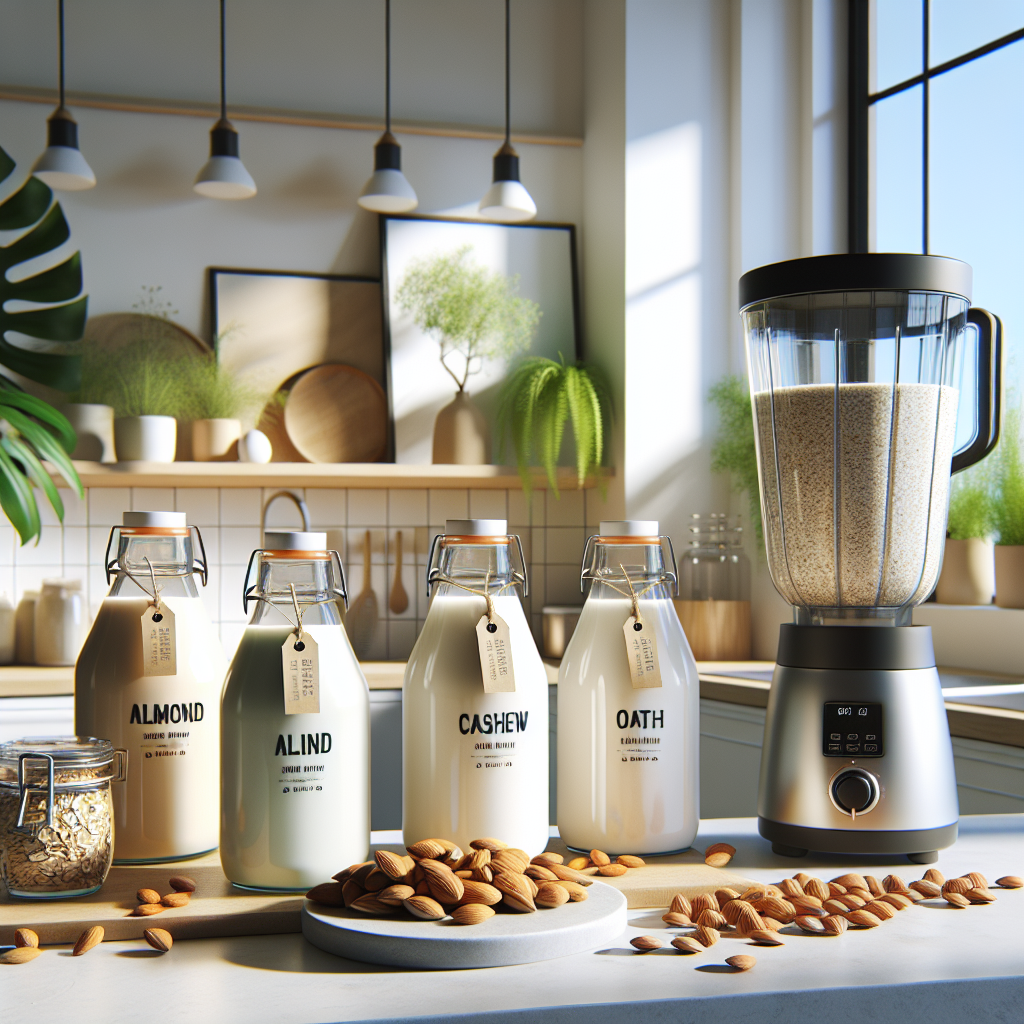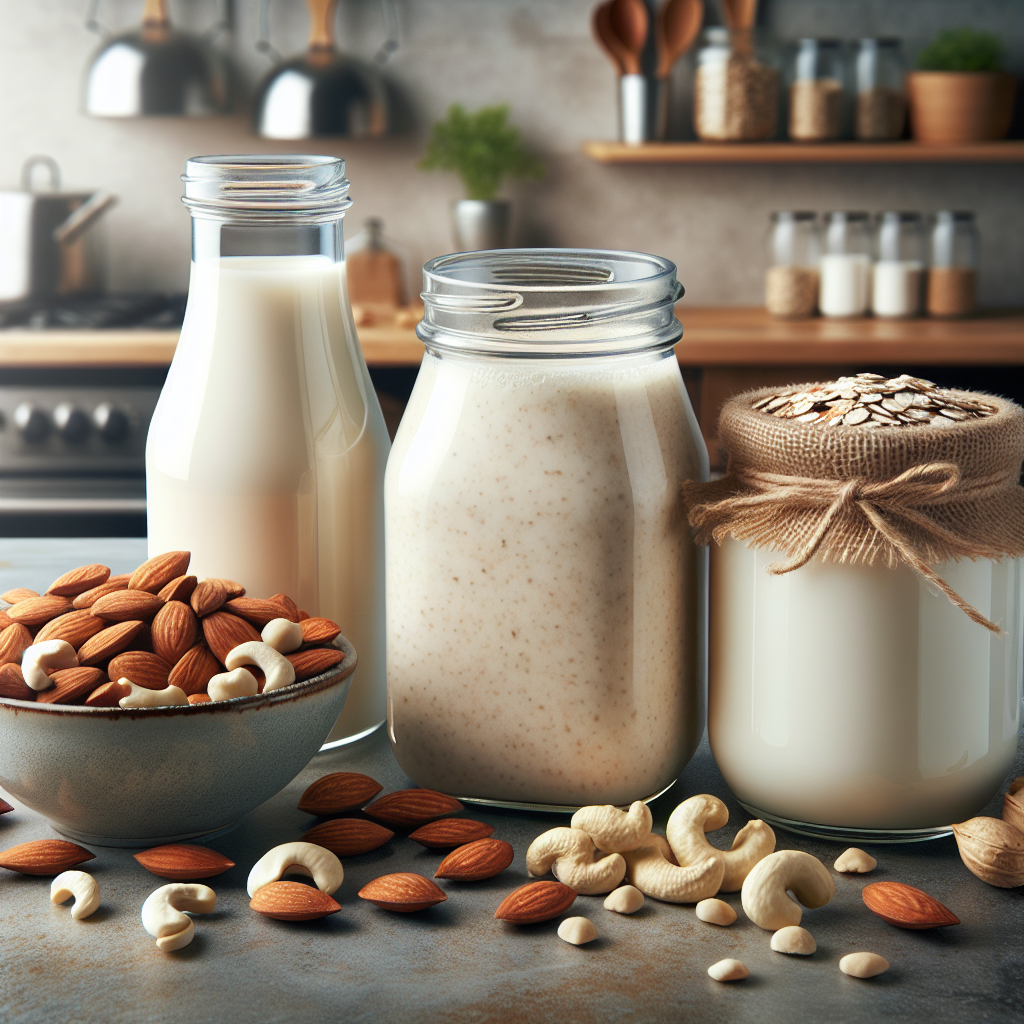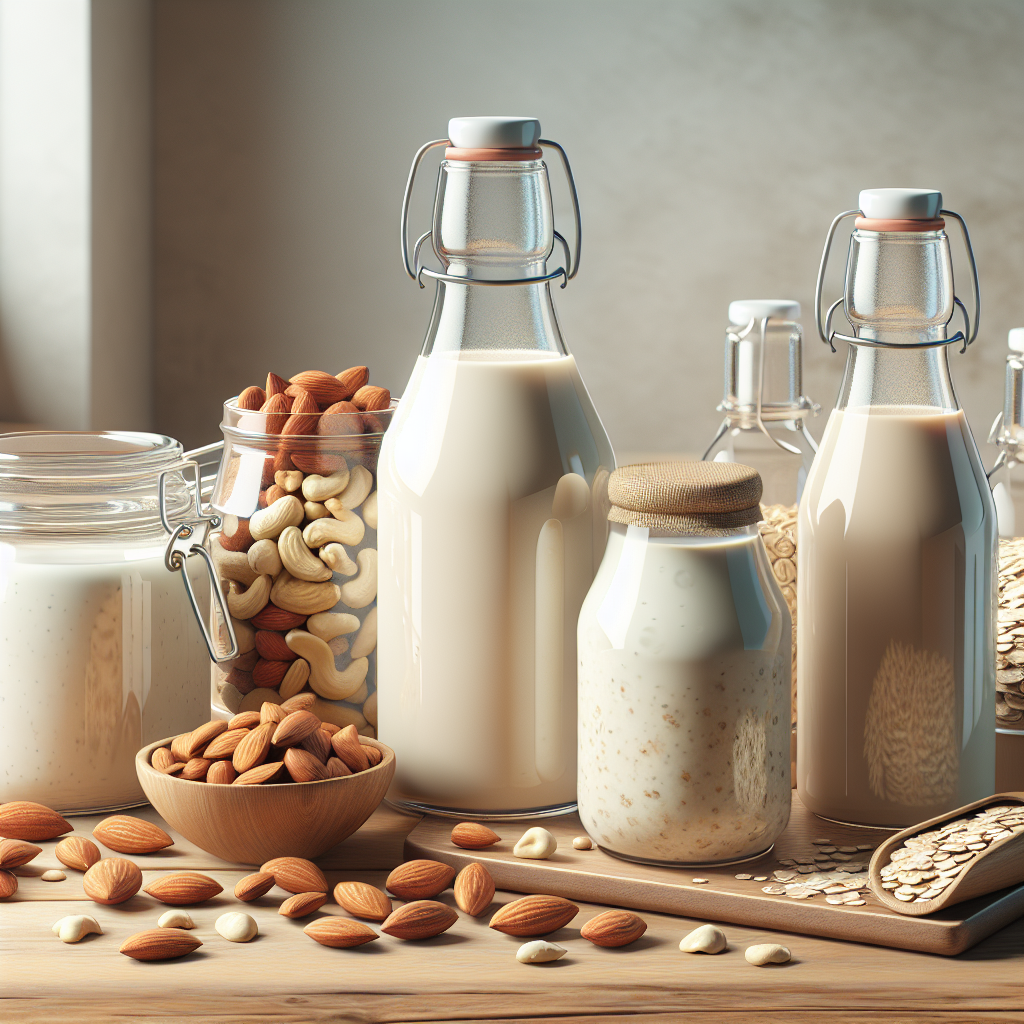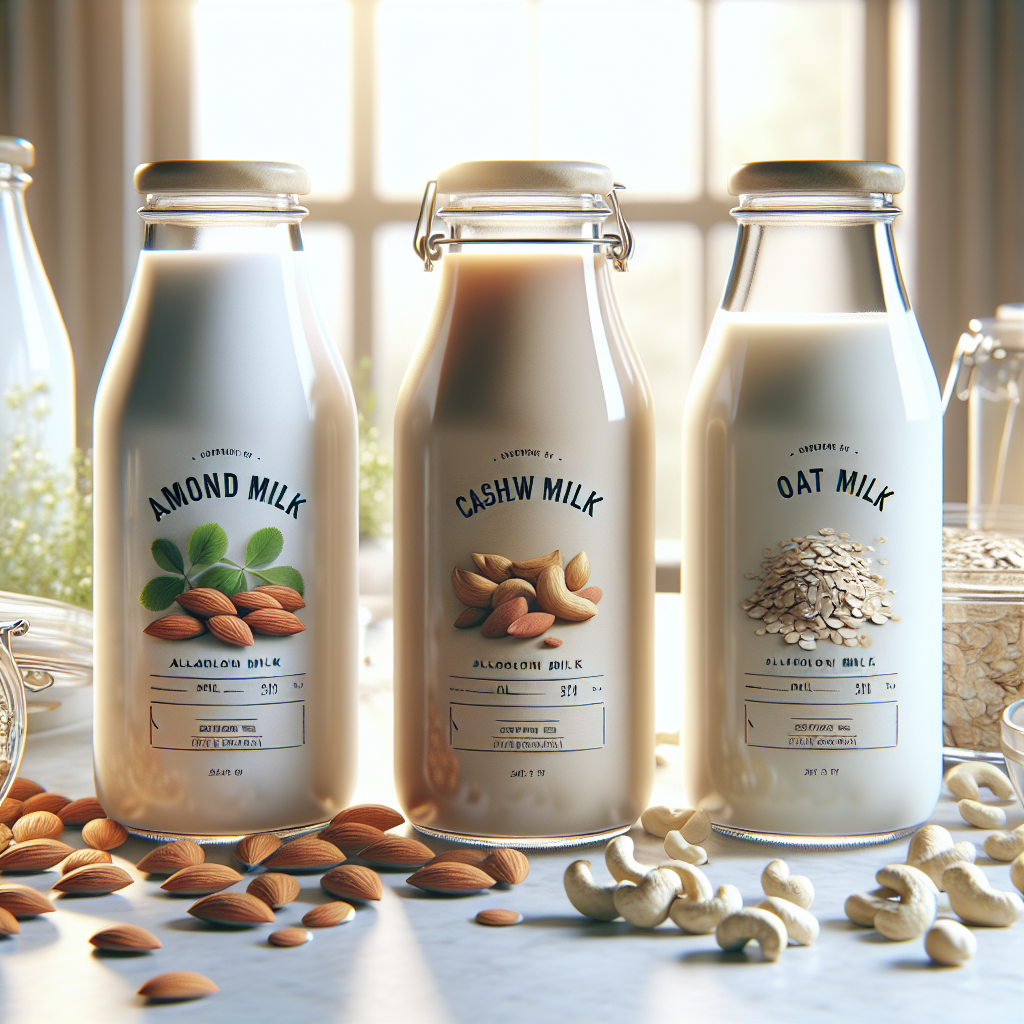In today's rapidly evolving world, the importance of making sustainable and health-conscious choices has never been more crucial. One such choice is switching to eco-friendly milk. Unlike traditional dairy milk, eco-friendly milk is derived from a variety of nuts, grains, and seeds, providing a lactose-free, additive-free, and preservative-free alternative that caters to a wide array of dietary needs and preferences.
Eco-friendly milk is not only beneficial for your health but also significantly reduces your environmental footprint. Traditional dairy farming is known for its substantial greenhouse gas emissions, water usage, and land requirements. On the other hand, plant-based milk production uses fewer resources and generates less pollution, making it a more sustainable choice.
Moreover, the versatility of eco-friendly milk allows for an endless array of flavor options. Whether you prefer the creamy texture of almond milk, the nutty taste of cashew milk, or the subtle sweetness of oat milk, there's a variety to suit everyone's palate. Additionally, making your own eco-friendly milk at home with a high-quality blender, such as the one offered by MilkDepot.ca, can save you up to 90% of the cost of store-bought milk.
Ready to make the switch? Get yours today! and start enjoying the numerous benefits of eco-friendly milk.
Health Benefits of Eco-Friendly Milk

Switching to eco-friendly milk offers a multitude of health benefits that make it an excellent choice for individuals of all ages. One of the most significant advantages is that eco-friendly milk is naturally lactose-free, making it an ideal option for those with lactose intolerance or sensitivity. This means you can enjoy a delicious and nutritious beverage without the discomfort associated with dairy consumption.
Eco-friendly milk is also free from common additives and preservatives found in many commercial dairy products. By opting for a plant-based milk alternative, you can avoid consuming unnecessary chemicals and artificial ingredients, promoting a cleaner and healthier diet.
In addition, eco-friendly milk is often rich in essential nutrients such as vitamins, minerals, and healthy fats. For instance, almond milk is a great source of vitamin E, which is known for its antioxidant properties, while oat milk provides a good amount of dietary fiber, aiding in digestion and heart health. Many eco-friendly milk options are also fortified with calcium and vitamin D, ensuring that you still receive these crucial nutrients for strong bones and teeth.
Furthermore, plant-based milks tend to be lower in calories and saturated fats compared to traditional dairy milk. This makes them a suitable choice for those looking to manage their weight or reduce their intake of unhealthy fats. With such a wide range of benefits, it's clear that eco-friendly milk is a healthy and nutritious alternative to conventional dairy products.
Environmental Impact of Dairy Alternatives

The shift towards eco-friendly milk isn't just beneficial for your health; it also makes a significant positive impact on the environment. Traditional dairy farming is known for its considerable environmental footprint, involving high greenhouse gas emissions, extensive water usage, and land degradation. In contrast, dairy alternatives offer a more sustainable and environmentally conscious option.
One of the most notable advantages of plant-based milks is their lower greenhouse gas emissions. Producing almond, oat, soy, or other plant-based milks generates far fewer carbon emissions compared to cow's milk. This reduction in greenhouse gases helps mitigate climate change, contributing to a healthier planet.
Water conservation is another critical benefit of choosing dairy alternatives. Traditional dairy farming requires an immense amount of water, not only for the cows themselves but also for growing the feed crops they consume. On the other hand, producing plant-based milks like almond or oat milk uses significantly less water, making them a more sustainable option in water-scarce regions.
Additionally, the land use associated with dairy farming is considerably higher than that of plant-based milk production. Dairy farms require large areas for grazing and growing feed, leading to deforestation and loss of biodiversity. By opting for plant-based milks, you support more efficient use of land resources, helping to preserve natural habitats and promote biodiversity.
Furthermore, the production of eco-friendly milk alternatives often involves fewer pesticides and fertilizers compared to traditional dairy farming. This reduction in chemical use helps protect soil health and reduces the pollution of waterways, contributing to a cleaner and safer environment.
In summary, choosing eco-friendly milk over conventional dairy products can substantially reduce your environmental footprint, making it a responsible and sustainable choice for the planet.
Cost Savings with Eco-Friendly Milk

Switching to eco-friendly milk not only benefits the environment but also offers significant cost savings. The financial advantages of making your own plant-based milk at home can be substantial, especially when considering the rising costs of store-bought alternatives.
One of the most compelling reasons to opt for homemade plant-based milk is the potential to save up to 90% of the cost compared to purchasing pre-packaged milk from the store. Commercially available plant-based milks often come with a premium price tag due to packaging, transportation, and marketing costs. By making your own milk at home, you can eliminate these added expenses, keeping your budget in check.
Making eco-friendly milk at home is not only cost-effective but also incredibly easy and convenient with the right tools. With a high-quality blender like the one offered by MilkDepot.ca, you can turn any nut, grain, or seed into fresh, filtered milk in less than 60 seconds. This quick and efficient process ensures that you have a constant supply of nutritious milk without the need for frequent trips to the grocery store.
Moreover, when you make your own plant-based milk, you have control over the ingredients. Store-bought varieties often contain additives, preservatives, and sweeteners that you may prefer to avoid. By making milk at home, you can choose organic, high-quality ingredients and customize the flavor to suit your taste, all while saving money.
Additionally, homemade plant-based milk reduces waste, another cost-saving aspect. Store-bought milks usually come in single-use packaging, contributing to environmental pollution and additional costs for recycling or disposal. By making your own milk, you can significantly cut down on packaging waste, supporting a more sustainable lifestyle.
In conclusion, opting for eco-friendly milk is a smart financial decision that aligns with eco-conscious values. The cost savings are undeniable, making it an attractive option for anyone looking to reduce expenses while enjoying a healthier and more sustainable milk alternative.
Unlimited Flavor Options and Customization
One of the standout benefits of switching to eco-friendly milk is the unparalleled ability to customize flavors and ingredients to your liking. When you make your own plant-based milk at home, you open up a world of unlimited flavor options that cater to your unique preferences and dietary needs.
Commercially available plant-based milks often come in a limited range of flavors and may contain additives and sweeteners that you’d prefer to avoid. However, with a high-quality blender from MilkDepot.ca, you can experiment with a variety of nuts, grains, and seeds to create your own custom milk blends. Whether you enjoy the creamy richness of almond milk, the subtle sweetness of oat milk, or the exotic flavor of coconut milk, the possibilities are endless.
The customization doesn’t stop at the base ingredient. You can enhance your homemade milk with natural flavorings like vanilla, cinnamon, or cocoa. For those who prefer a touch of sweetness, you can add natural sweeteners such as dates, honey, or maple syrup, without the worry of artificial additives. This level of customization ensures that your milk not only tastes delicious but also aligns with your dietary goals and health requirements.
Creating your own plant-based milk also allows you to adjust the consistency to your preference. Whether you like your milk thick and creamy or light and smooth, you’re in control. This flexibility is particularly beneficial for those with specific dietary needs, such as individuals who are lactose intolerant, vegan, or following a low-sugar diet.
Moreover, making your own flavored milk can be a fun and educational activity for families. Involving children in the process of selecting ingredients and creating their favorite milk flavors can encourage healthier eating habits and foster a greater appreciation for nutritious, homemade food.
In summary, the ability to customize your plant-based milk is a game-changer for anyone seeking to enhance their diet and enjoy a variety of delicious flavors. The versatility and creativity that come with making your own milk make it a truly enjoyable and rewarding experience.
How to Make Eco-Friendly Milk at Home

Switching to eco-friendly milk has never been easier, thanks to the innovative technology of the MilkDepot.ca blender. Making your own plant-based milk at home is not only simple but also highly rewarding. Here’s a step-by-step guide to get you started:
- Choose Your Base Ingredient: Select your preferred nut, grain, or seed. Popular choices include almonds, cashews, oats, and hemp seeds. Ensure that your ingredients are fresh and organic for the best results.
- Soak (if necessary): Some ingredients, like nuts and seeds, benefit from being soaked in water for a few hours or overnight. This helps soften them and makes the blending process smoother.
- Add Water: The standard ratio is usually one part nuts, seeds, or grains to two to four parts water, depending on how thick you want your milk to be. Experiment to find your perfect consistency.
- Blend: Place the soaked ingredients and water into the MilkDepot.ca blender. Blend for less than 60 seconds to achieve a smooth, creamy milk.
- Filter: Thanks to the blender’s built-in filtration system, you don’t need an additional straining step. The milk is automatically filtered, giving you a clean, pulp-free beverage.
- Customize: Add natural flavorings and sweeteners to taste. Vanilla extract, a pinch of salt, or a few dates can elevate the flavor of your homemade milk.
- Store: Pour your freshly made eco-friendly milk into a glass bottle or jar and refrigerate. Homemade milk typically lasts 3-5 days in the fridge.
Making eco-friendly milk at home not only allows you to enjoy fresher, healthier milk but also supports a more sustainable lifestyle. By reducing your reliance on store-bought milk, you cut down on packaging waste and lower your carbon footprint.
Ready to transform your milk-making experience? Get yours today! Embrace the benefits of homemade, eco-friendly milk with MilkDepot.ca’s revolutionary blender.
